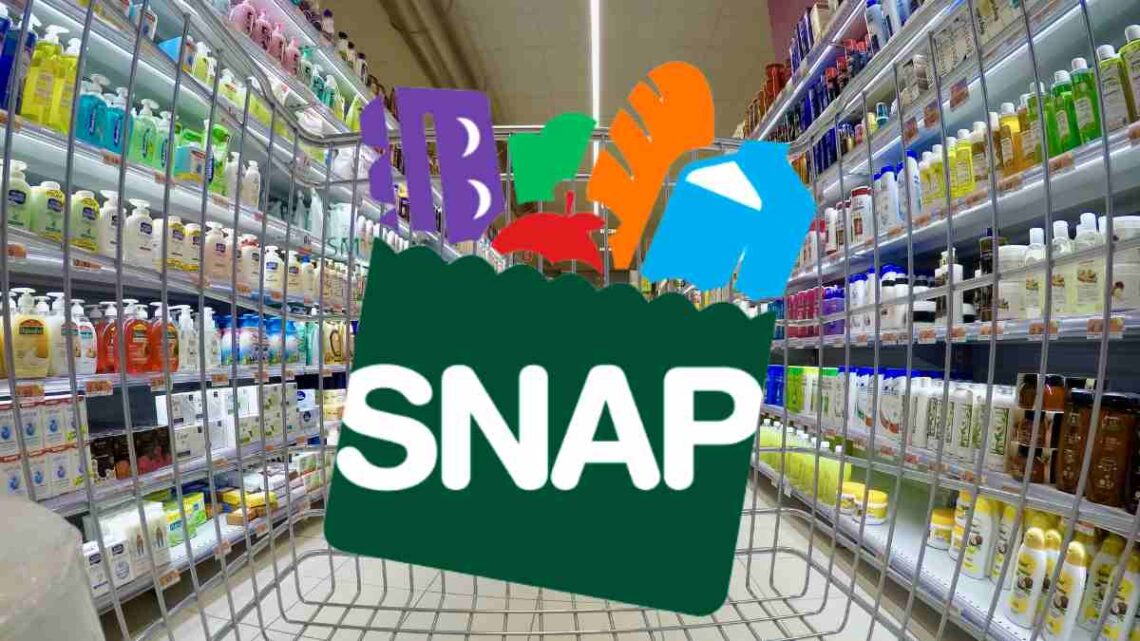SNAP Benefits Update: New Allowances for Retirees Over 60
According to Vibes.okdiario, As living costs continue to rise, many retirees in the U.S. are turning to the Supplemental Nutrition Assistance Program (SNAP), also known as “food stamps,” to help supplement their income and cover essential food needs. For low-income individuals and families, SNAP provides critical financial assistance to purchase groceries, becoming especially important for retirees whose Social Security benefits may fall short of meeting their basic living expenses.
How Age Impacts SNAP Benefits for Seniors
For those over 60, certain advantages in SNAP eligibility and benefits may apply. While there is no age requirement for applying to SNAP, individuals over 60 often find they have access to added benefits and greater flexibility in meeting program requirements.
Higher Income Thresholds for Seniors
One of the key benefits for seniors is higher income thresholds. Individuals aged 60 and over may qualify for SNAP even with an income level that would be too high for younger applicants. This allows retirees who are already receiving Social Security checks to potentially receive additional SNAP assistance.
Deduction of Medical Expenses
Seniors can also deduct specific medical expenses when calculating income for SNAP eligibility, which can be a significant advantage. Deductible expenses include prescriptions, doctor visits, and other health-related costs, which reduce net income in the eyes of the program and make it more likely for retirees to qualify for SNAP.
Simplified Application Process in Some States
To ease access, some states have implemented a streamlined application process for seniors. By reducing paperwork and bureaucratic requirements, states aim to make SNAP benefits more accessible for older adults who may find traditional processes challenging.
Combining Social Security Benefits with SNAP
For retirees already receiving Social Security, SNAP benefits can provide crucial support. While Social Security income is considered when determining SNAP eligibility, it doesn’t automatically disqualify an applicant. Combining both programs can be essential to ensuring access to adequate and nutritious food, especially when Social Security checks alone do not cover all living expenses.
Many retirees find their Social Security payments insufficient for rising costs like housing, utilities, and healthcare. In such cases, SNAP offers valuable assistance for purchasing food, which can support better health outcomes for older adults.
Additional Factors Impacting SNAP Eligibility
While age and income are primary considerations, other factors play a role in SNAP eligibility and benefits, especially for retirees.
Household Income
Household income, including Social Security benefits, wages, and pensions, is a key determinant for SNAP eligibility. Although seniors may have more flexible limits, exceeding a certain threshold could still lead to disqualification.
Financial Resources and Assets
Assets, such as savings and property, are also considered, although a primary residence is typically excluded from these calculations. For retirees receiving Supplemental Security Income (SSI), certain resource tests may be waived, making it easier to qualify for SNAP benefits.
Disability Status
For individuals with disabilities, SNAP offers additional eligibility considerations. Like seniors over 60, disabled individuals can also deduct medical expenses, which may improve their chances of qualifying for food assistance. Given the high cost of medical care, this deduction can be especially valuable.
Also read: Maximize Your Benefits: What $698 and $1,539 Mean for November Social Security Payments
Navigating the Balance Between Social Security and SNAP
Balancing eligibility for Social Security and SNAP benefits can be complex, as each program has unique requirements. Social Security income is considered when assessing SNAP eligibility, but its impact may be less restrictive than other income sources, like wages.
For example, wages from employment might affect an applicant’s standing more significantly, whereas Social Security payments often have a more limited effect on SNAP eligibility. Retirees need to understand each program’s criteria and documentation requirements to maximize their benefits.
State-Level Variations in SNAP for Seniors
While there are no specific SNAP eligibility rules exclusive to seniors, certain states offer more lenient asset limits for households with elderly members. However, states do have some flexibility in modifying SNAP eligibility criteria and benefit amounts.
- Highest and Lowest Benefits: In fiscal year 2023, Hawaii had the highest average monthly SNAP benefit per household member at $385, while Minnesota had the lowest at $157.
- Highest Percentage of SNAP Recipients: States with the highest percentage of SNAP recipients in 2022 included New Mexico (25%), D.C. (22%), Louisiana (18%), and West Virginia (18%).
- Florida’s Expanded Work Requirements: Florida recently expanded SNAP work requirements to include adults up to age 59, beyond federal rules, a move that critics argue could cause hardship for older residents losing benefits.
- Florida’s “Benefits Cliff” Law: A new Florida law aims to help those who earn too much to qualify for SNAP but not enough to be self-sufficient. This includes case management support for transitioning off SNAP, though it does not provide additional financial relief.
SNAP Benefits as a Lifeline for Retirees
For retirees on limited income, SNAP benefits can serve as a vital support system, helping them access nutritious food and better maintain their health. With eligibility provisions for seniors, including higher income thresholds, medical expense deductions, and streamlined application processes, more retirees can now benefit from SNAP as an essential supplement to Social Security.






